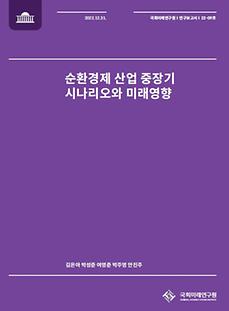
This study analyzed the impact of the circular economy on Korean industry, and the analysis was largely divided into two parts. The first segment entailed identifying six key industries that are projected to experience significant social, economic, and environmental ramifications as a result of transitioning to a circular economy. A scenario framework was then developed, comprising a set of high-priority strategies, in order to construct a 2050 circular economy strategy scenario. Based on this scenario framework, the impacts of transitioning the aforementioned six key industries to a circular economy on the overall Korean industrial sector were analyzed. In the second part, an examination of domestic and foreign policy as well as technology pertaining to the plastic circular economy, which has been widely acknowledged as a pressing area of intervention, was conducted. The status of Korea's plastic circular economy was diagnosed based on the comparative policy and technology analysis, as well as a material flow analysis throughout the entire life cycle of plastics. Additionally, a comparative life cycle assessment was performed to analyze the environmental impacts of plastic recycling utilizing the currently available technologies with respect to two business-as-usual scenarios. Overall, the transition to a circular economy in key industries is expected to bring about economic and environmental benefits in the mid-to-long-term, however, technological innovation is still required to fully capitalize on these benefits.